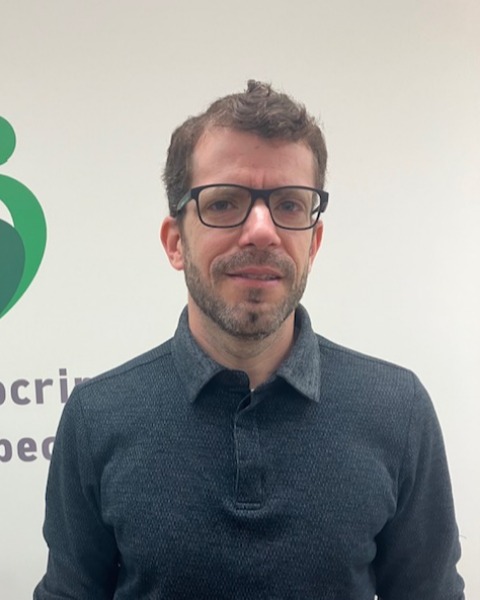Prevention
Research
Advocacy
EDI (Equity, Diversity, Inclusion)
Global Health
Nursing & Allied Health
Canadian Society of Echocardiography (CSE)
Canadian Heart Failure Society (CHFS)
Canadian Cardiac Oncology Network (CCON)
343 - CARDIOVASCULAR HEALTH ASSESSMENT AND MANAGEMENT IN TRANSGENDER INDIVIDUALS
-

Amélie Paquin, MD, PhD (she/her/hers)
Cardiologist
Institut Universitaire de Cardiologie Et de Pneumologie de Québec
Institut universitaire de cardiologie et de pneumologie de Québec - Université Laval -

Philippe Dupuis, MD (he/him/his)
Endocrinologist
CHU de Québec - Université Laval -

Marie-Eve Piché, MD, PhD
MD, PHD
Quebec Heart and Lung Institute
Laval University -
CS
Caroline Samhani, MD
Dr
laval -

Keila Turino Miranda, MSc (she/her/hers)
PhD Student
McGill University
McGill University -
CS
Caroline Samhani, MD
Dr
laval -

Amélie Paquin, MD, PhD (she/her/hers)
Cardiologist
Institut Universitaire de Cardiologie Et de Pneumologie de Québec
Institut universitaire de cardiologie et de pneumologie de Québec - Université Laval -

Maude Roberge, MD (she/her/hers)
Cardiologist
CHU de Québec -

Guillaume St-Pierre, MD, FRCPC (he/him/his)
Cardiologue et cardio-oncologue chez CISSS de Chaudière-Appalaches
Laval University -

Keila Turino Miranda, MSc (she/her/hers)
PhD Student
McGill University
McGill University -

Guillaume St-Pierre, MD, FRCPC (he/him/his)
Cardiologue et cardio-oncologue chez CISSS de Chaudière-Appalaches
Laval University -

Amélie Paquin, MD, PhD (she/her/hers)
Cardiologist
Institut Universitaire de Cardiologie Et de Pneumologie de Québec
Institut universitaire de cardiologie et de pneumologie de Québec - Université Laval -

Maude Roberge, MD (she/her/hers)
Cardiologist
CHU de Québec -
CS
Caroline Samhani, MD
Dr
laval
Chair(s)
Presenter(s)
Early Career(s)
Trainee(s)
Moderator(s)
Planning Committee Member(s)
Workshop Description: Transgender, gender-diverse and non-binary persons (TGD) experience unique disparities when it comes to cardiovascular health. In Canada, 1 person in 300 identifies as TGD. A significant portion of this population experiences transphobia, stigma, and a lack of understanding in health care.
Compared to cisgender adults, those who identify as TGD present an increased risk of cardiovascular disease. While gender-affirming hormonal therapy (GAHT) can play a role, it does not fully explain this disparity and not all TGD persons pursue GAHT as part of their gender affirmation journey. TGD persons are more strongly affected by traditional cardiovascular risk factors. Minority stress also profoundly affects many TGD persons by hindering their access to education, healthcare, employment, and social services. These experiences ultimately shape lifestyle behaviors such as polysubstance use, low physical activity levels, and disordered eating behaviors, all of which are known to impact cardiovascular risk.
GAHT is rapidly evolving thanks to growing socio-cultural recognition and improved accessibility. As more TGD individuals seek medical interventions, it becomes essential to better understand the cardiovascular implications of GAHT. Research indicates that GAHT improves quality of life, but its potential long-term effects on cardiovascular health may require careful monitoring. The cardiovascular management of TGD persons requires a holistic and patient-centred approach. Treatment decisions must be based on collaboration between professionals and patients, in order to balance the benefits and risks of GAHT.
The underrepresentation of TGD individuals in clinical studies has led to gaps in evidence-based care. Furthermore, TGD research has historically been constructed "on" rather than "with" TGD persons. The inclusion of TGD persons in cardiovascular research is crucial to better understand the complex interactions influencing their health.
To reduce these disparities, changes are needed: increased training of healthcare professionals, adoption of inclusive policies, and development of specific guidelines for cardiovascular health in TGD persons. Attendees of this workshop will gain a better understanding of the complex issues affecting cardiovascular health in this population and will acquire practical tools to apply an informed and inclusive approach when caring for these patients.
Learning Objectives:
- apply an inclusive and informed approach to transgender, gender-diverse and non-binary individuals in the context of healthcare;
- identify cardiovascular risk factors and their potential impact on cardiovascular health in transgender, gender-diverse and non-binary individuals and to discuss the intersectional factors which are likely to impact cardiovascular health in this population; and
- implement equitable strategies facilitating the inclusion of transgender, gender-diverse and non-binary individuals in cardiovascular research.
